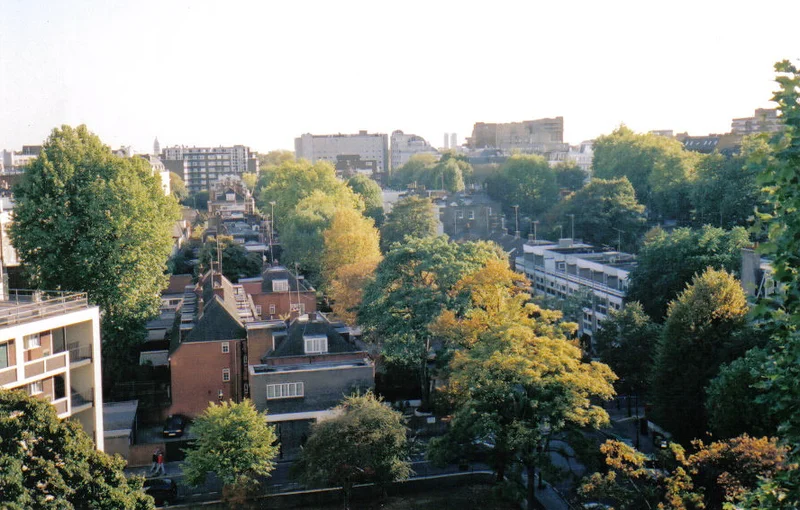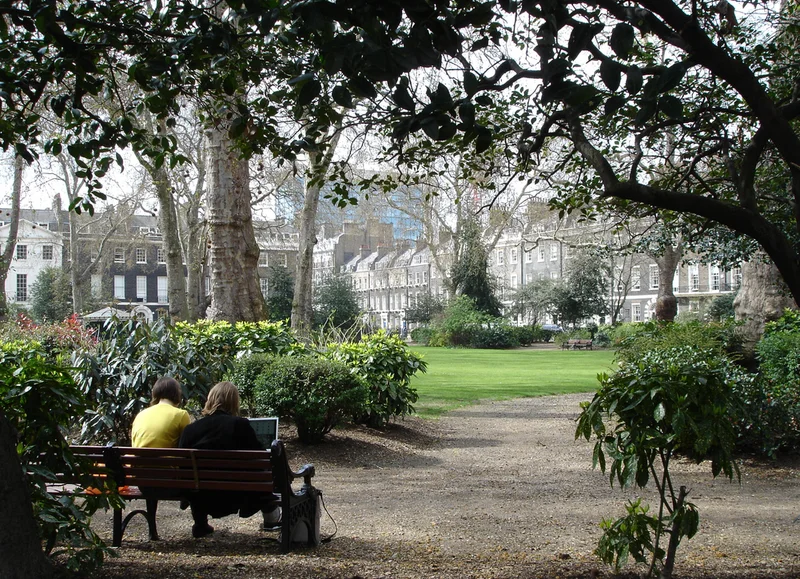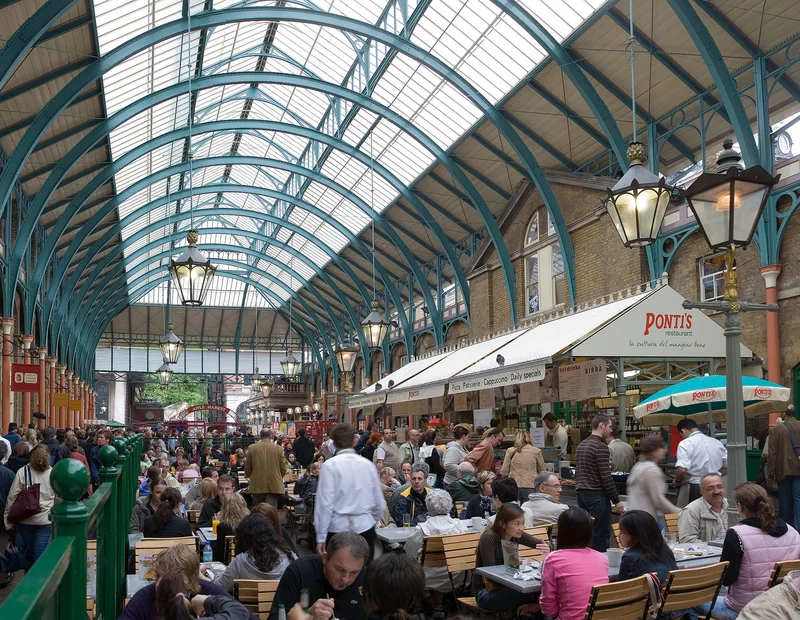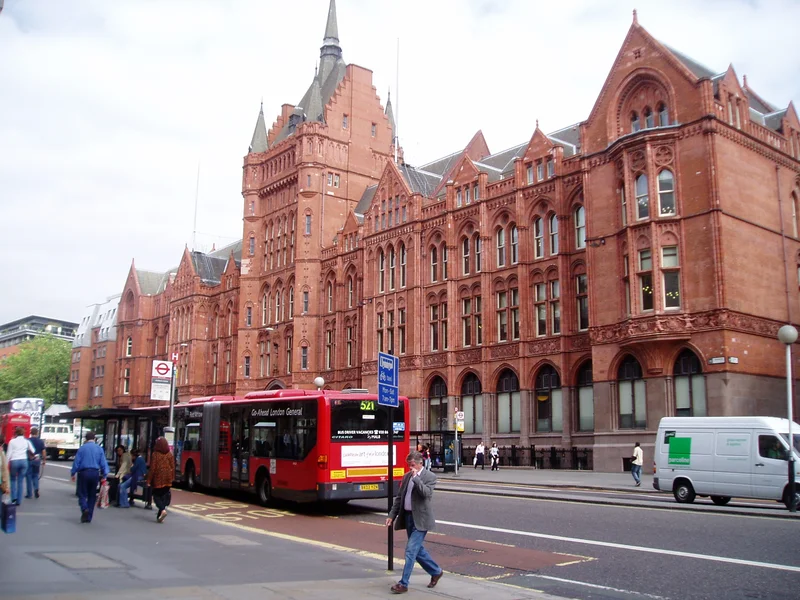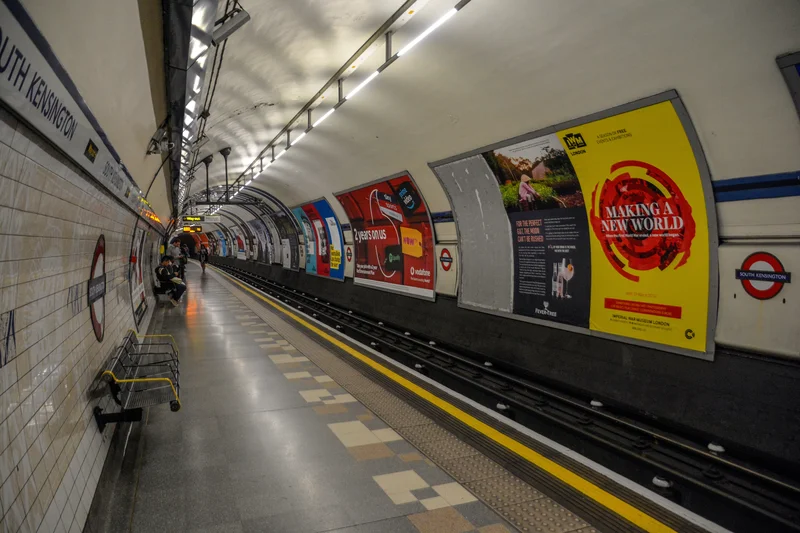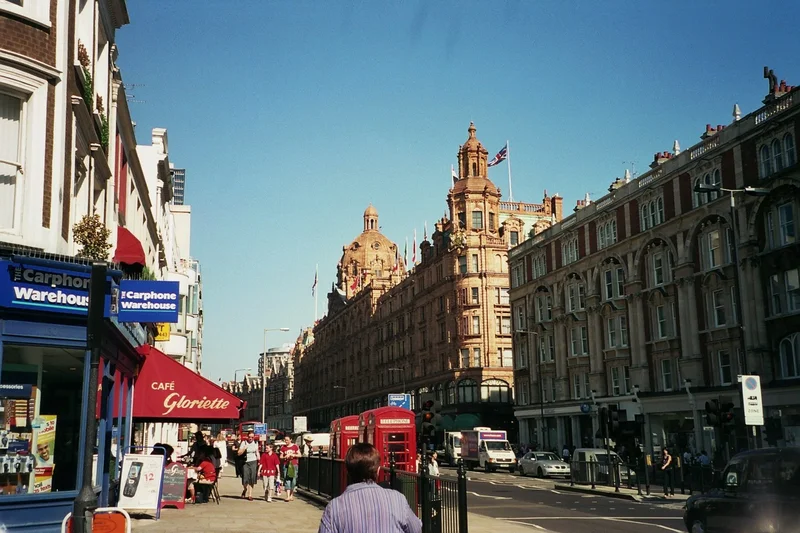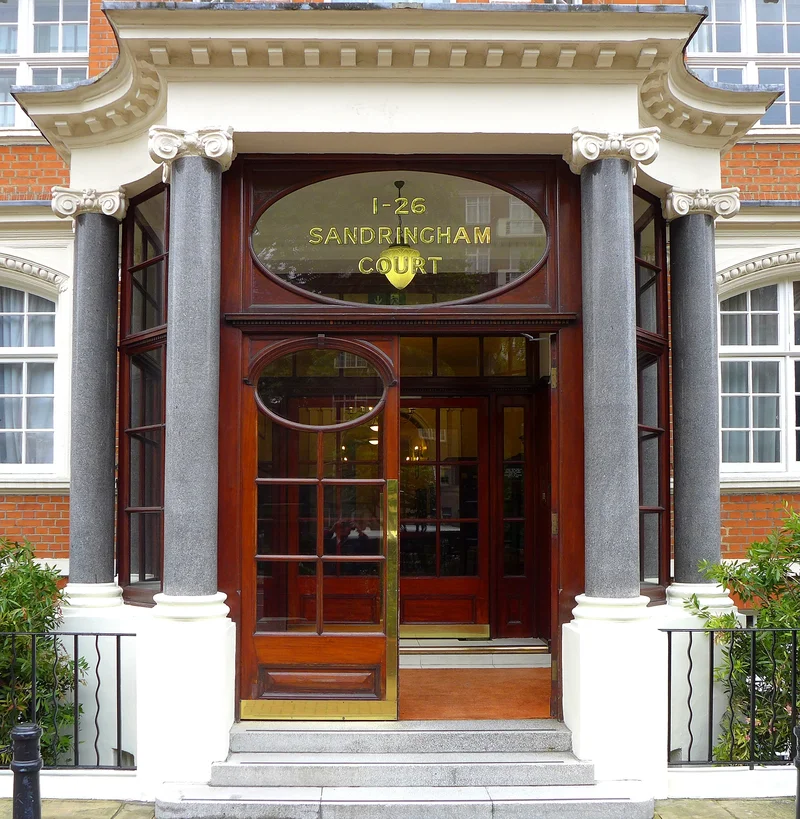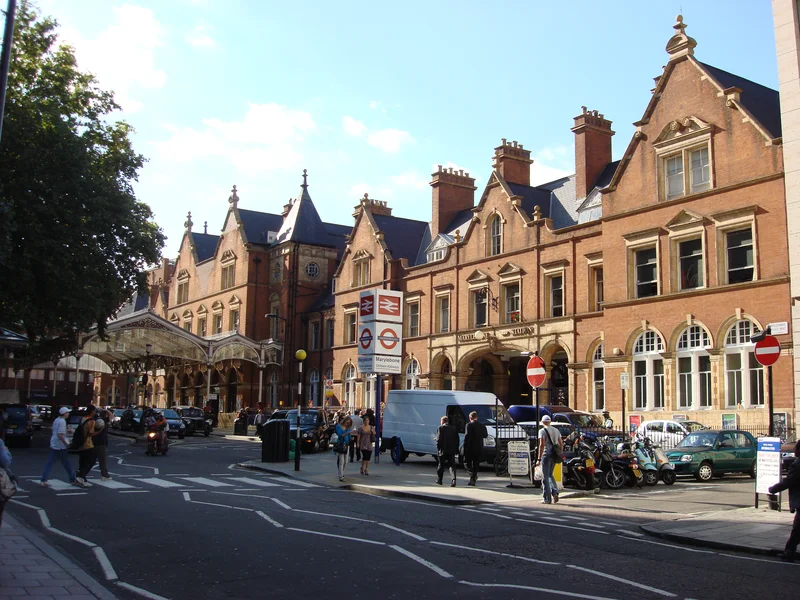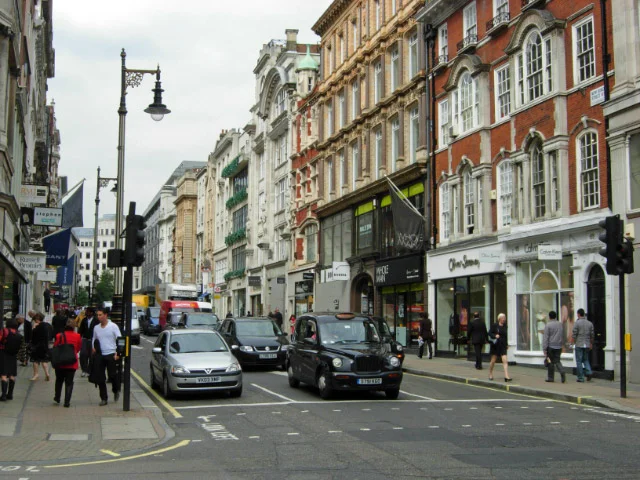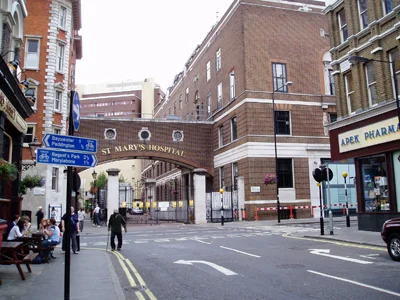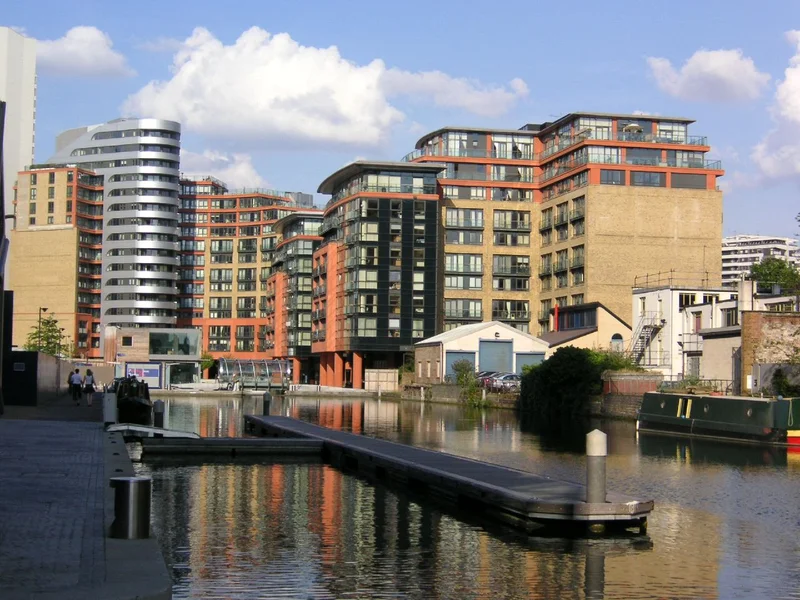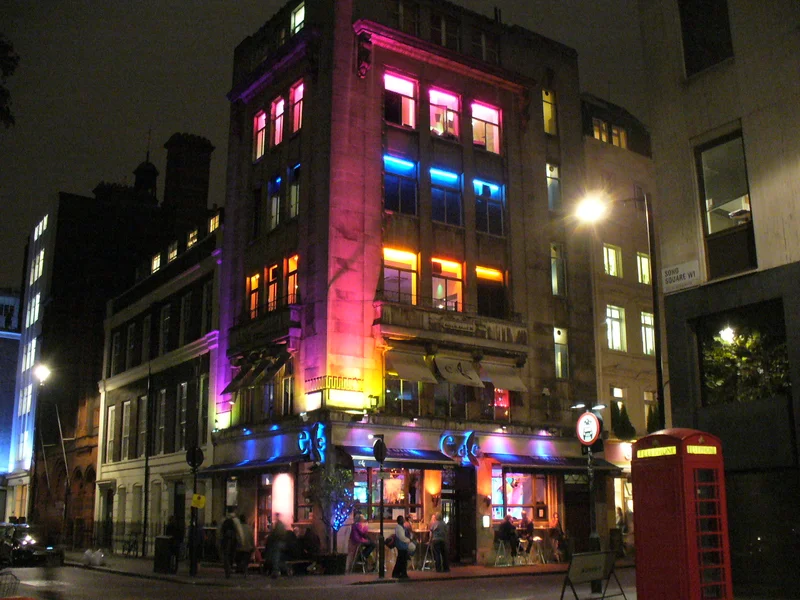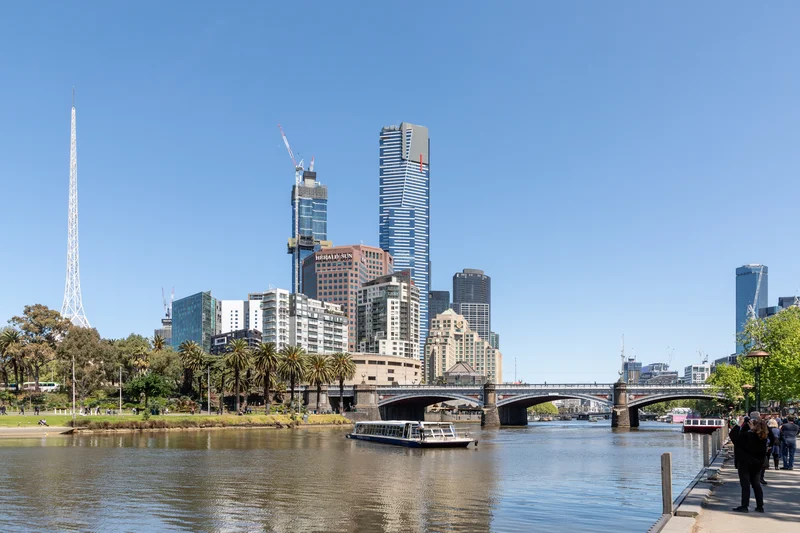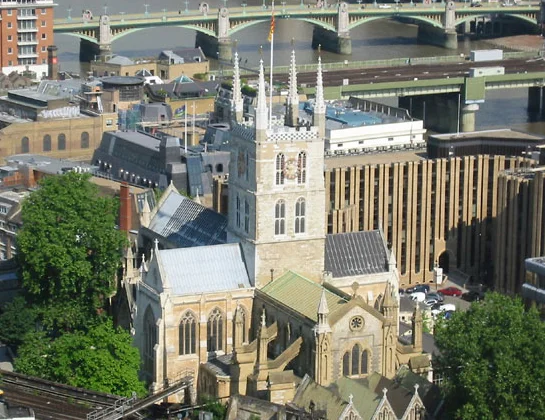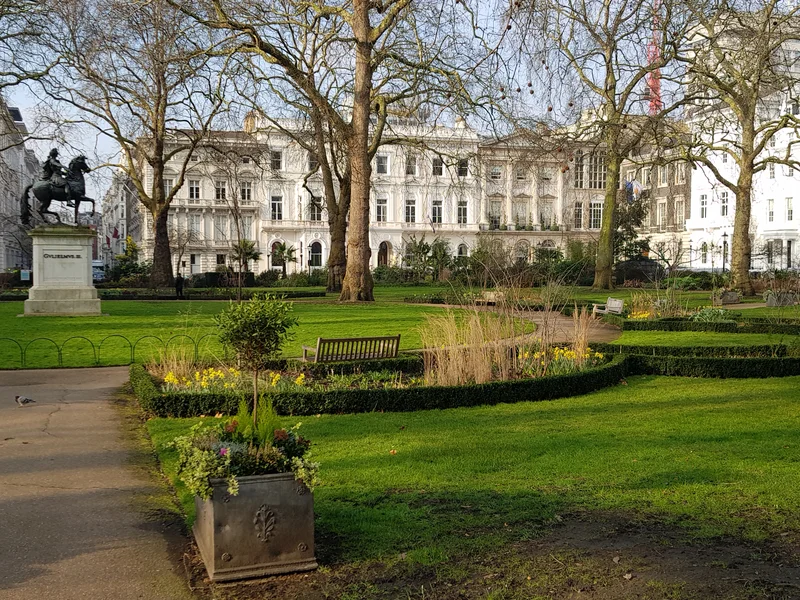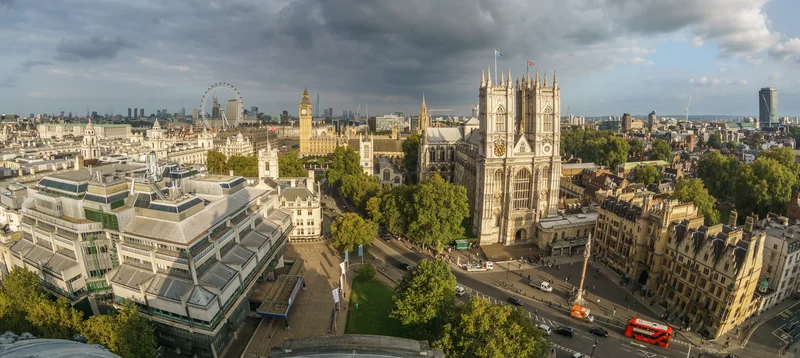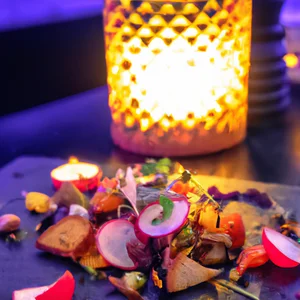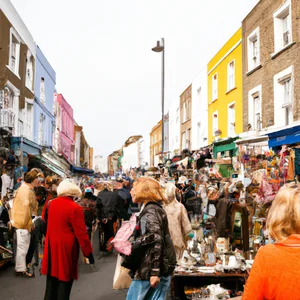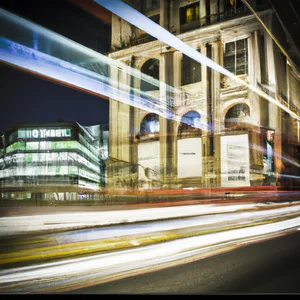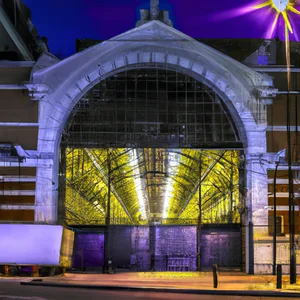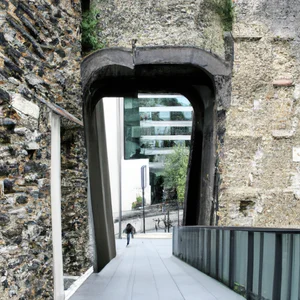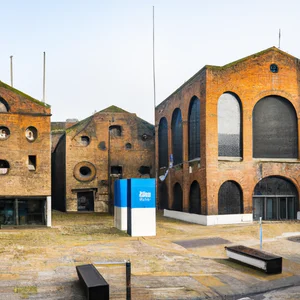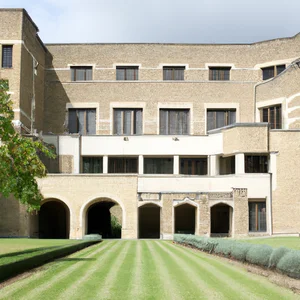Book your experience
Tourist scams in London
Hey, let’s talk a bit about tourist scams in London, which are a real nightmare, believe me! Now, I don’t want to scare you, but there really are some scoundrels who are trying to steal money from you in a sneaky way. So, if by chance you find yourself walking through the streets of this magnificent city, here are some tips so you don’t fall for it.
So, first of all, you need to keep your eyes open. I’ll tell you something: once, while I was traveling, I came across a guy who was trying to sell tours at rock-bottom prices. Well, the trick was that he showed you a bunch of shiny photos and then, bam, you realized that the tour was nothing like he described it to you. So, in short, if you hear offers that seem too good to be true, well, they probably are!
Another classic is that of “living statues” which, to be honest, seem more like traps than attractions. I’ve seen people walk up, take a photo, and then find themselves having to leave a tip, even if they didn’t want to. Don’t get me wrong, I understand that street art is fantastic, but beware of those who ask you for money a little too insistently.
Then there are also the famous “false policemen”. Yes, you got it right! There are those who pretend to be an agent and ask you to check your documents, saying that there have been thefts in the area. The bizarre thing is that, maybe, they tell you that you have to pay a fine for something you didn’t even do! I don’t know about you, but this gives me shivers.
In short, my dispassionate advice? Do your research before leaving and don’t be fooled by those who try to sell you the trip of a lifetime in an instant. And, oh, if you feel unsure, always ask someone local. People are generally friendly and willing to help you. You may not always have the right advice, but at least you will have a clearer idea.
Remember, safety first. London is beautiful, and deserves to be enjoyed without worries. So, buckle up and get ready to explore, but with one eye always open!
Recognize the most common scams in London
An unexpected encounter with a scammer
During a trip to London, I found myself in Camden Market, immersed in the vibrant colors of the stalls and the scent of the culinary specialities. While enjoying a delicious falafel, I was approached by a man who claimed to be a street performer. With a dazzling smile and a charming gesture, he invited me to see his “masterpiece”. Fortunately, my curiosity led me to look more closely, and I noticed that his “masterpiece” was actually a well-orchestrated trick to extract money from tourists. This episode opened my eyes to the most common tourist scams in London, which is essential for any visitor to know.
The most common scams
In London, as in many other tourist cities, scammers are adept at creating situations in which tourists can feel vulnerable. Among the most frequent scams, we find:
- Fake street artists: Like the one I met, they often present themselves as talents looking for an audience, but their real goal is to get money in exchange for “performances” that may seem more impressive than they really are .
- Surveys and Fake Fundraisers: Some may approach you with a petition or donation request for a cause that may seem legitimate, but doesn’t actually exist.
- Scam guided tours: They promise unique experiences at rock-bottom prices, but often turn out to be simple walks with no informative value.
An insider tip
One trick to avoid falling into these traps is to observe the behavior of the people around you. If you notice a crowd gathering around a street performer or vendor, take a moment to assess whether the attention is genuine or whether there is an atmosphere of pressure. London insiders know that the best experiences are often found away from the crowded tourist areas.
A significant cultural impact
Tourist scams not only damage the local economy, but can also influence tourists’ perception of London culture. London, with its rich and varied history, is a crossroads of cultures and traditions. Scams can obscure the real beauty of this metropolis, causing many visitors to go home with a negative impression.
Sustainable tourism practices
Being aware of scams not only helps you protect your wallet, but also encourages more sustainable tourism. Choosing to interact with local vendors and participate in authentic community events supports the local economy and reduces the impact of scams.
Conclusion
As you explore London, remember that awareness is your best friend. What has been your experience with tourism scams? Have you ever experienced an unexpected moment that changed your perception of a city? In a world where every corner can hide a surprise, the real adventure is learning to navigate safely.
Clever scammer techniques in action
During my last trip to London, I witnessed a scene that left me speechless. As I strolled along the bustling Camden Market, I noticed a man approaching tourists with an affable smile. Within minutes, he had entertained a group of visitors with fascinating stories and irresistible offers for private tours of the city. Only after looking into the matter further did I discover that his enthusiasm was just a front for a well-orchestrated scam. This episode opened my eyes to the cunning techniques of scammers operating in the heart of London.
Common techniques used by scammers
Scammers in London are masters at exploiting the vulnerability and innocence of tourists. The most common techniques include:
- Fake tour offers: As I have seen myself, many fake guides offer tours at rock-bottom prices, but then reveal hidden costs or take tourists to uninteresting places.
- “Bracelet” scams: Some street performers approach people, tie a bracelet around their wrist and ask for a generous donation.
- Fake surveys and fundraisers: Another trick is to approach tourists with a fake survey, asking for a donation on behalf of non-existent causes.
Insider tips
A tip that few know is to inform in advance about official tours and attractions, using recognized websites and verified reviews. In this way, tourists can avoid falling into the trap of scammers posing as expert guides.
The cultural impact of tourist scams
Tourist scams are not only a problem for visitors, but also for the city itself. London, with its rich history and culture, deserves to be explored authentically. These scams damage not only the city’s image, but also the local economy, with many tourists feeling let down and exploited.
Responsible tourism
To combat these practices, it is important to adopt a responsible tourism approach. Choosing certified local operators and supporting small businesses is a great way to contribute to a more sustainable economy.
An experience not to be missed
If you want an authentic experience, I recommend visiting one of the many local markets, such as Borough Market. Here you can enjoy fresh food and artisanal products, a true reflection of London’s gastronomic culture, without the risk of scams.
Myths and misconceptions
A frequent myth is that all tourists are easy prey for scammers. In reality, many Londoners are attentive and offer support to those who seem to be in difficulty. Don’t hesitate to ask anyone who lives in the city for directions or advice; often you they will show you the right path.
In conclusion, next time you are in London, he reminds you to stay alert and informed. Ask yourself: What story behind a smile could hide a scam? Your curiosity could reveal more than you think, enriching your travel experience in unexpected ways.
How to avoid the famous scam “guided tours”.
An eye-opening experience
On my first trip to London, I had a list of attractions to see: Big Ben, the London Eye and Tower Bridge. But, like many tourists, I found myself faced with an irresistible offer of a “guided tour” at a rock-bottom price. The guide, a man with a top hat and a dazzling smile, promised a unique experience. However, as the tour continued, I realized that much of the information was incorrect and that the time was spent in souvenir shops rather than the historical wonders I wanted to visit. This episode taught me a valuable lesson on how to navigate the tourist-crowded landscape of the British capital.
Recognize the warning signs
Scam guided tours are a common trap for many visitors. They often present themselves as last minute offers, promising an exclusive experience at a price you can’t refuse. Online reviews can be manipulated and many of these tours are not officially registered. According to the VisitBritain website, it is always best to book through recognized platforms or directly with local tourism organisations.
- Check reviews on trusted sites like TripAdvisor.
- Check the registration of the guide and ask if he is authorized.
- Request route details and make sure it visits the places you want to see.
Insider tip
A little-known trick is to ask residents for tour recommendations. Often, Londoners know about small, local businesses that offer authentic, well-curated experiences far from the tourist traps. For example, Secret London Tours is an excellent option that takes you to discover hidden corners of the city, away from the crowds.
A significant cultural impact
The proliferation of fraudulent guided tours not only harms the tourist experience, but also has a cultural impact. Ill-informed tourists can lead to a distorted understanding of London’s history and traditions. The city, with its rich heritage, deserves to be explored with respect and knowledge.
Sustainability in tourism
Opting for authentic guided tours often also means supporting small local businesses that practice responsible and sustainable tourism. These realities tend to respect the environment and local communities, creating a positive impact. When choosing a tour, look for ones that promote sustainability, such as those that use eco-friendly transportation or that offer zero-waste experiences.
Soak up the atmosphere
Imagine walking the streets of London, surrounded by the vibrant sounds and colors of the local markets. Every corner tells a story, and every step brings you closer to a deeper understanding of the city. By avoiding scam tours, you can truly experience the essence of London, discovering not only the monuments, but also the stories that surround them.
An activity worth trying
If you want an authentic experience, consider taking a food tour of the Borough or Camden markets. These tours will not only let you savor culinary delights, but will also allow you to interact with local vendors, discovering recipes and stories you wouldn’t find in a tour guide.
Myths to dispel
Many believe that guided tours are always the best option for exploring a city. However, it is essential to distinguish between quality tours and scam offers. Not all expensive tours are authentic, and not all cheap offers are scams. The key is to do your research and choose wisely.
Final reflection
Next time you venture to London, ask yourself: What stories do I really want to discover? And, above all, how can I do this responsibly and authentically? The British capital has so much to offer, and the real beauty lies in its history , in its communities and in the genuine experiences that only true insiders can reveal to you.
The dangers of cheap souvenirs: be careful!
An Unexpected Discovery on Portobello Road
I still remember my first trip to London, walking around the bustling Portobello Road market. The colorful stalls displayed a myriad of objects ranging from antiques to kitsch. I stopped in front of a souvenir seller who offered magnets and mugs at rock-bottom prices. “I can’t let these slip away!”, I thought, grabbing a couple of pieces. Only later did I realize that they were not only ugly, but also of poor quality. This is a classic example of the dangers of cheap souvenirs that many tourists, like me, ignore.
The Truth About Cheap Souvenirs
In recent years, London has seen an increase in street vendors offering souvenirs at rock-bottom prices, often made with low-quality or even non-original materials. According to a report by the London Tourism Board, many of these items are imported en masse from countries where production costs are negligible, leading to the creation of a market saturated with products that do not truly represent British culture.
Here are some practical tips to avoid falling into this trap:
- Pay attention to prices: if it seems too good to be true, it probably is.
- Look for authorized sellers, such as those in official souvenir shops or reputable markets, such as Camden Market.
- Check the quality of the materials: an authentic souvenir should be well made and durable.
An Insidious Insider Tip
An unconventional tip: instead of buying cheap souvenirs, consider investing in a local experience. For example, attending a pottery workshop in London will not only allow you to create a unique memory, but also allow you to interact with local artisans and learn a bit of their history. Not only will you have an authentic souvenir, but also a memorable experience!
The Cultural Context of Scams
These practices aren’t just a way to make a quick profit; they reflect a wider reality of tourism in London. In a city so rich in history and culture, the risk of compromising authenticity for profit is ever-present. The proliferation of cheap souvenirs also has a negative impact on small local businesses, which struggle to compete at rock-bottom prices.
Responsible Tourism Practices
Taking a more sustainable approach to tourism in London means choosing to buy products from ethical markets or shops that support local artists. Not only will you contribute to the local economy, but you will also get souvenirs that tell a story.
Immerse yourself in the Atmosphere of London
Imagine walking along the streets of Notting Hill, surrounded by colorful houses and the smells of delicious food, whilst watching artisans at work. Every piece of craftsmanship you purchase becomes a story, a connection with the city and its vibrant cultural fabric.
Myths and Misconceptions
A common misconception is that expensive souvenirs are always of superior quality. This is not the case: there are also expensive items that are not worth the price at all. The important thing is to inform yourself and, if possible, ask the locals for advice.
Final reflection
Ultimately, every souvenir we bring home tells a story. I invite you to think about what story you want to tell with your purchases during your trip to London. It will be a story of quality and authenticity or a simple one low cost oddity? The choice is yours.
Authentic experiences: discover real London markets
A personal anecdote
I remember my first trip to London, when, after visiting the usual tourist spots, I found myself wandering the streets of Camden Town. The liveliness and energy of the market struck me immediately, but it was one experience in particular that stuck in my memory: a small kiosk serving freshly made crepes, with a line of locals patiently waiting their turn. That sweet and salty taste, combined with the scent of spices that lingered in the air, made me realize that London has much more to offer than just the classic monuments.
Markets not to be missed
London is dotted with markets that tell unique stories and offer an authentic cultural experience. Among the best known:
- Borough Market: A food lover’s paradise, where you can find fresh produce and gourmet preparations. It’s a great place to enjoy typical London dishes, such as fried fish sandwiches.
- Portobello Road Market: Famous for its antiques and vintage items, this market is a true journey back in time, with stalls displaying objects with nostalgic charm.
- Brick Lane Market: Not just food, but also art and culture. Here you can immerse yourself in the Bengali community and taste the best curry in the city.
An insider tip
A little-known tip is to visit the markets during less crowded hours, such as early in the morning on weekdays. This will not only allow you to enjoy a calmer atmosphere, but you will also have more opportunities to converse with the sellers, discovering fascinating stories behind the products they offer.
Cultural impact
Market culture in London has its roots in the city’s history, dating back centuries, when markets were the hub of social and commercial life. Today, these spaces not only represent an important source of livelihood for many, but also serve as places of meeting and cultural exchange. Traveling through the markets means immersing yourself in the daily life of Londoners.
Sustainability and responsible tourism
Many London markets are adopting sustainable practices, such as using biodegradable packaging and promoting local produce. Choosing to purchase from sellers who follow these principles not only supports the local economy, but also helps preserve the environment.
An experience worth trying
If you’re craving an authentic experience, don’t miss the chance to attend a cooking workshop at one of the markets. For example, at Borough Market, you can find courses that teach you how to prepare traditional London dishes with fresh ingredients purchased directly from vendors.
Myths and misconceptions
A common misconception is that markets are only for tourists. In reality, they are places where Londoners go regularly, a real beating heart of the city. Discovering a market means discovering the real London.
Final reflection
As you prepare for your trip to London, ask yourself: What stories can I discover in the markets I will visit? Immersing yourself in the authentic experiences of London’s markets is not only a way to savor the local culture, but also an opportunity to connect with the city on a deeper level. Don’t forget to bring a reusable bag with you for your purchases!
The hidden history of London tourist scams
An unexpected encounter
I still remember my first trip to London, when, browsing the crowded streets of Covent Garden, I came across a street performer who, with his incredible stunts, attracted an enthusiastic crowd. Fascinated, I approached, only to discover that this talent was just part of a larger deception. While the audience applauded, an accomplice approached, trying to snatch a few quid from the distracted tourists. That experience opened my eyes to a less bright aspect of the British capital: the long history of tourist scams.
A panorama of deception
London is not only a metropolis rich in culture and history; it is also a fertile ground for cunning scammers who take advantage of the good faith of tourists. From the famous “fake street artist” scams to “guided tours” that promise exclusive experiences but turn out to be scams, the city has seen a variety of deceptions evolve over time that date back to the 19th century. In fact, according to an article in the London Evening Standard, historians believe that the art of defrauding tourists became an established practice already during the Victorian era, when the influx of visitors reached record peaks.
Insider advice
One of the lesser-known secrets among locals is that many tourists fall for scams simply due to lack of information. Unconventional advice? Before accepting any offer or approaching a street performer, take a look around: see if there are other tourists involved or, worse, if anyone seems to be an accomplice. A simple glance can reveal a lot.
The cultural impact
The history of tourist scams in London is not just a matter of dishonesty; it also reflects a broader cultural aspect. The city, with its historic streets and bustling markets, attracts visitors from all corners of the world, creating an environment where scammers can thrive. This dynamic has led, over the years, to greater awareness and, consequently, to protection measures for tourists, such as the information campaigns promoted by the municipality of London.
An experience worth trying
To combat scams, why not explore an authentic market like Borough Market? Here, not only will you have the opportunity to savor local delicacies, but you can also immerse yourself in London’s food culture without the risk of falling into tourist traps. Talk to the sellers, discover their stories and enjoy a genuine experience.
Myths and misconceptions
A common misconception is that scams are always obvious; in reality, they often disguise themselves in disguise. Don’t let appearances fool you: even the most innocuous “guided tours” can hide hidden costs and poor service. Caution is essential.
A final reflection
As you prepare for your trip to London, I invite you to reflect: what does an authentic experience mean to you? The beauty of this city lies in its complexity, and knowing its history, even the darkest one, can enrich your visit. Can you see past the scams and discover the real London?
Unconventional tips for traveling safely
An unexpected encounter
During one of my visits to London, I found myself strolling along the vibrant Camden Town Market, known for its eclectic atmosphere. While admiring the artisans at work and the scent of international food wafting in the air, I came across a small stall run by a local artist. With a smile, he invited me to try one of his works, a painting that captured the essence of London. At that moment, I learned an important lesson: not all tourist experiences are scams, but it is essential to remain vigilant and informed.
Practical and up-to-date information
London, with its rich history and vibrant culture, attracts millions of tourists every year. However, travelers should be aware of common scams. According to the Metropolitan Police, the most common scams include unregistered street performers, cheap souvenir sellers and opaque guided tours. A useful tip is to always check online reviews on platforms such as TripAdvisor or Google Maps, to get a clear idea of the reputation of a business.
An insider tip
Here’s a little-known trick: When exploring markets, look for signs that say “local artists” or “artisanal products.” Many of these sellers are true artists offering unique and authentic works, often at reasonable prices. In Camden, for example, many artists offer works that tell stories of London, making the purchase not just a souvenir, but a piece of culture.
The cultural impact of scams
The history of tourist scams in London dates back centuries. As early as the 19th century, tourists were deceived by street vendors and scammers who tried to take advantage of visitors’ innocence. This phenomenon has led to growing awareness on the part of authorities and citizens, pushing to develop more responsible practices in tourism, such as the registration of street performers and the promotion of authentic markets.
Responsible tourism practices
For a more sustainable and responsible travel experience, consider supporting small local businesses. Many markets, such as Borough Market, offer fresh, artisanal produce, allowing visitors to learn more about London cuisine and culture. Furthermore, by purchasing from local producers, you contribute to a more sustainable economy.
Immerse yourself in the atmosphere of London
Imagine walking among the colorful stalls of Portobello Road Market, where every corner tells a story. The laughter of children, the scents of spices and the melodies of street musicians create a lively atmosphere. It is in these moments that one realizes that London is much more than just a tourist destination; it is a mosaic of authentic experiences just waiting to be discovered.
Activities to try
I recommend visiting Borough Market on a weekend. In addition to enjoying delicious dishes, you will have the opportunity to interact with the vendors and understand their passion for what they do. This will help you distinguish between genuine products and scams.
Myths to dispel
A common myth is that all tourism experiences are scams. In fact, there are many genuine opportunities to explore London without falling for deception. The key is to inform yourself, ask questions and trust your instincts.
A final reflection
Next time you find yourself in London, what will you do to ensure a safe and authentic visit? Staying alert and curious can turn your trip into a memorable adventure, full of unique discoveries and encounters.
Sustainability and responsible tourism in London
When I first visited London, I was fascinated by its vibrant energy and the stories that every corner seemed to tell. However, for every wonder discovered, I also noticed how tourism can take a toll on the environment and local communities. An anecdote that struck me was when, walking along the Thames, I met a group of young people who, armed with gloves and bags, were collecting waste. “It’s our way of giving back to the city,” they explained, and this experience made me reflect on the importance of a responsible approach to travel.
A more conscious tourism
London, like many other large cities, is facing sustainability challenges. Tourists can contribute to this problem with unconscious behaviors, such as purchasing unsustainable products or overusing resources. To counter this trend, it is crucial to be informed and adopt responsible tourism practices:
- Use public transport: London’s transport network is excellent and reduces the environmental impact compared to using taxis or rental cars.
- Choose eco-friendly accommodation: Many hotels and hostels in London adopt sustainable practices, such as the use of renewable energy and waste management.
- Buy local and sustainable souvenirs: Instead of mass-produced products, look for local artisans who offer unique and environmentally friendly items.
An insider advises
A little-known tip is to visit sustainably sourced food markets, like Borough Market. Here you can find local producers offering fresh, seasonal products, thus contributing to a more sustainable economy and an authentic gastronomic experience.
A profound cultural impact
The concept of responsible tourism is not just a trend, but dates back to a long tradition of respect for the environment and local cultures. London, with its rich and varied history, teaches us that every visit should be an opportunity to learn, respect and contribute. Cultural awareness is fundamental to preserving the artistic and human heritage of the city.
Activities to try
For an authentic and sustainable experience, I recommend taking a guided walking tour of London’s lesser-known neighbourhoods. Not only will these tours take you to discover hidden gems, but they are often led by local guides who share stories and anecdotes, allowing you to immerse yourself in London culture.
Myths to dispel
A common misconception is that sustainable tourism is more expensive. In fact, many times it is possible to find economical options that are environmentally friendly. For example, choosing to eat at restaurants that use local ingredients can also prove more convenient than international food chains.
Final reflections
As you explore the beauty of London, ask yourself: How can I help make my trip not only a personal experience, but also a positive step for the community and the environment? Taking a responsible approach not only enriches your trip, but also preserves the magic of London for future generations.
Warning about fake street artists and scams
An unexpected encounter in Camden Town
One of my most memorable experiences in London was while walking among the colorful stalls of Camden Market. The scent of spices and the sound of live music created a vibrant atmosphere. However, my attention was quickly captured by a group of street performers performing an engaging show. But, alas, not all that glitters is gold. After a spectacular performance, one of the “musicians” approached me, asking me to make a donation towards his “work” and explaining that he was a struggling artist. My feeling of generosity turned to suspicion when I noticed that, next to him, another “artist” was collecting money from other tourists.
Recognize fake street artists
London is full of street artists, but not all of them are genuine. Some of them may turn out to be cunning scammers, taking advantage of the goodwill of tourists. Here are some warning signs:
-** Overly elaborate performances **: If the artist seems exaggeratedly good or if his show is particularly complex, be careful. It could be part of a well-orchestrated scam.
- Persistent requests for money: If someone asks you to pay immediately or leave a contribution, it’s a red flag.
- Groups of artists collaborating: If you notice multiple artists approaching tourists to ask for money, it is likely that they are working together to scam.
Insider tip: Discover real artists
One way to ensure your donations go to real artists is to look for performances in less touristy areas, such as Borough Market or the Southbank Centre. Here, local artists perform without the expectation of immediate profit, and you can enjoy their art without the risk of scams.
A dive into history
Busker scams have their roots in the history of London, where buskers have always played a crucial role in urban culture. However, the spread of tourism has also attracted less honest individuals, turning the streets into a breeding ground for fraud. It is important to be aware of this phenomenon to preserve the authenticity of the London experience.
Responsible and sustainable tourism
When you visit London, consider supporting real local artists. Many of them use recycled materials or practice sustainable art forms, contributing positively to the community. Choosing to support them not only enriches your experience, but also the cultural fabric of the city.
An experience worth having
If you want to experience an authentic street art moment, I recommend heading to Pineapple Dance Studios in Covent Garden, where local artists perform regularly. Here you can enjoy a vibrant and genuine atmosphere, far from scams.
Myths to dispel
A common myth is that all street performers are scammers. In fact, many of them are talented performers who contribute to the culture and atmosphere of London. It is important to discern between those who are genuine and those who are just trying to take advantage of the good faith of tourists.
A final reflection
London is a city full of culture and creativity, but it’s essential to keep your eyes open. Have you ever had similar experiences with street artists? What was your reaction? Share your story and remember: traveling is beautiful, but doing it wisely is even better!
Warning signs in tourist restaurants
A personal experience
I still remember the day I found myself in a restaurant in Piccadilly Circus, surrounded by tourists and bright lights. The menu, elegant and well laid out, promised traditional British dishes at rock-bottom prices. My intuition led me to take a closer look, and so I noticed that the prices didn’t match what was written on the blackboard outside. That seemingly charming restaurant turned out to be a tourist trap. This experience opened my eyes to how easy it is to fall into these culinary pitfalls in London.
Warning signs
When it comes to tourist restaurants, there are some signs to look out for:
- Menu with exorbitant prices that you can’t escape: If the restaurant has a large menu posted outside with prices much lower than those inside, be careful. This is often a trick to lure unsuspecting tourists.
- Overly friendly service: If the waiters are too persistent in trying to convince you to come in, there is probably something fishy.
- Pre-cooked or reheated food: If food is served too quickly, it may have already been prepared and reheated, rather than freshly cooked.
An insider tip
A little-known trick is to ask locals where they like to eat. Restaurants that aren’t targeted by tourists tend to have better prices and more authentic dishes. A great way to discover these culinary gems is to use apps like ‘EatWith’ or ‘Meet the Locals’, which offer authentic dining experiences in the homes of local chefs.
Cultural and historical impact
London’s food culture is an intricate fabric of global traditions and influences. However, the proliferation of tourist restaurants has led to a dilution of the city’s culinary identity. This phenomenon not only harms local restaurateurs, but also the dining experience of visitors.
Responsible tourism practices
Choosing to eat at restaurants that use local, sustainable ingredients not only supports the local economy, but also provides a more authentic dining experience. Opting for farm-to-table restaurants is a responsible choice that helps preserve London’s culinary culture.
An immersion in the atmosphere
Imagine sitting in a cozy restaurant in the heart of Camden, surrounded by colorful murals and live music, while sipping a craft beer and savoring a plate of fish and chips prepared with the freshest fish. These are the experiences that make a trip to London truly memorable and make you forget about touristy restaurants.
An activity not to be missed
For an authentic food experience, visit Borough Market. This historic market offers a wide range of fresh and prepared foods, allowing you to savor true London flavours. Additionally, you will have the opportunity to interact with local producers and learn more about the city’s culinary culture.
Myths and misconceptions
A common misconception is that all restaurants near major attractions are quality. In fact, many of them were designed to exploit the tourist crowd, offering poor quality dishes at high prices. Don’t let the location fool you; also explore the back roads.
A personal reflection
Next time you’re in London and tempted to pop into a crowded restaurant, ask yourself, “Am I looking for an authentic experience or a simple quick meal?” Recognizing the warning signs in tourist restaurants will not only help you save money, but will also lead you to discover a more genuine and charming side of this extraordinary city. How about venturing beyond the established tourist routes and discover where Londoners really love to eat?

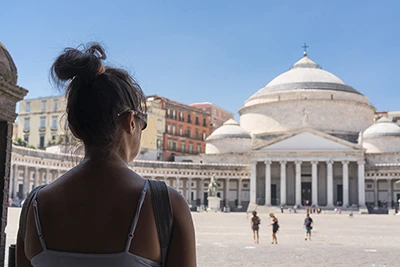 Architecture and Design
Architecture and Design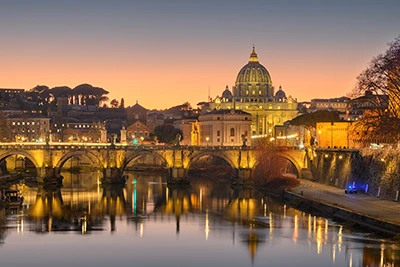 Cities and Regions
Cities and Regions Culture and History
Culture and History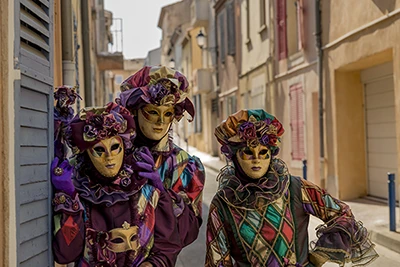 Events and Festivals
Events and Festivals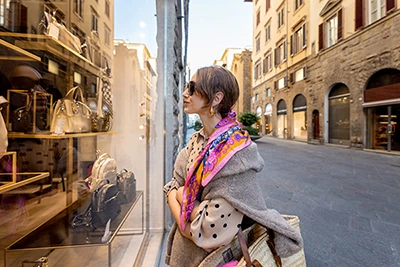 Fashion and Shopping
Fashion and Shopping Food and Wine
Food and Wine Nature and Adventure
Nature and Adventure Unique Experiences
Unique Experiences